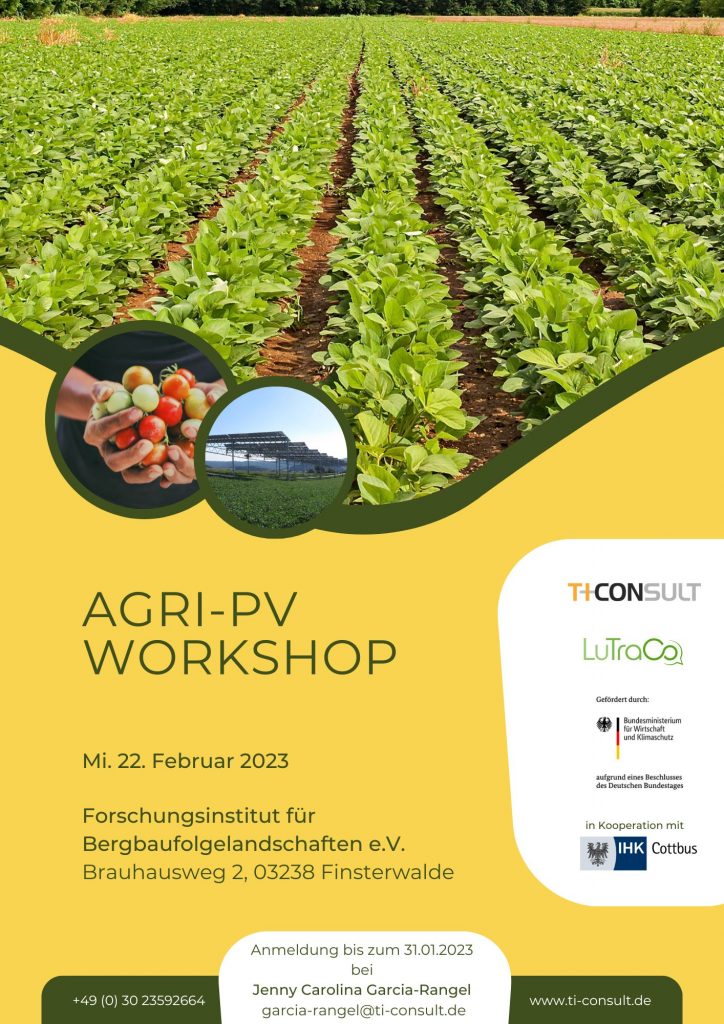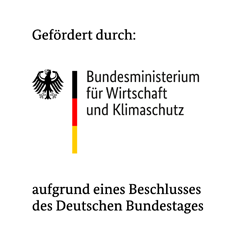LuTraCo Workshop on Agri-Photovoltaics – February 22, 2023
Last Wednesday, February 22, the LuTraCo-Agri-PV workshop took place in Finsterwalde. This meeting brought together stakeholders from Lusatia as well as interested participants from beyond the region to jointly discuss the possibility of integrating Agri-PV as a renewable energy solution.
Nowadays we are facing times when energy and agricultural production require special attention to ensure their production. The Agri-PV event presented the possibilities of integrating experts in this field, such as the Fraunhofer Institute ISE and its Agri-PV group led by Mr. Trommsdorff, the Research Institute for Post-Mine Landscapes (FIB) e.V., which deals with the analysis of cultivated areas, land availability and the impact of the microclimate specifically for Lusatian crop production.
Other important topics such as technical requirements of Agri-PV integration, risks, insurance, financing and funding opportunities also found their place in the program. Given the multidisciplinary and diverse backgrounds of all participants, the presentations generated stimulating conversations and discussions. Many stakeholders from Lusatia as well as guests from other federal states used the workshop to get an overview of the current priorities in agri-photovoltaics and took the opportunity to talk to each other informally.
The advantages of integrating photovoltaics in agriculture are numerous. Agri-PV solves the classic land conflict of energy and food production through dual use of land. It also allows farmers to reduce their dependence on fossil fuels and reduce their carbon footprint. The solar panels can also provide shade for the plants, reduce water consumption and prevent heat stress, which can lead to higher yields. In addition, the modules can be raised to allow machinery to pass under them, reducing soil compaction and allowing more efficient use of the land.
Although photovoltaics in agriculture offers many potential benefits, there are also some drawbacks and challenges that should be considered. These include initial investment costs, ongoing maintenance, modification of traditional farming practices, potential long-term impacts on soil health, and compatibility with agricultural policies. By carefully weighing the pros and cons of agricultural photovoltaics, farmers and policy makers can make an informed decision about whether this technology is right for their needs.
The workshop was prepared by T+I Consult in cooperation with FIB e.V. and carried out with the support of IHK Cottbus and AGROSecur Versicherungsmakler GmbH.

